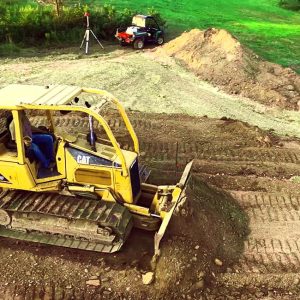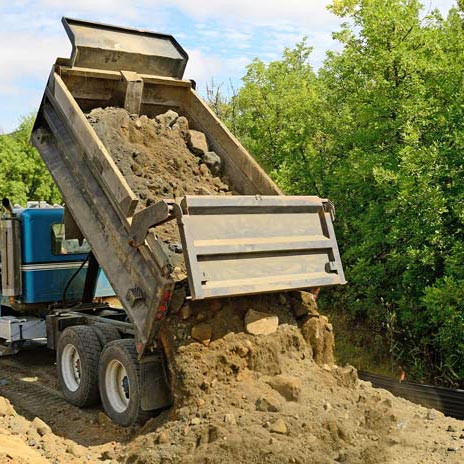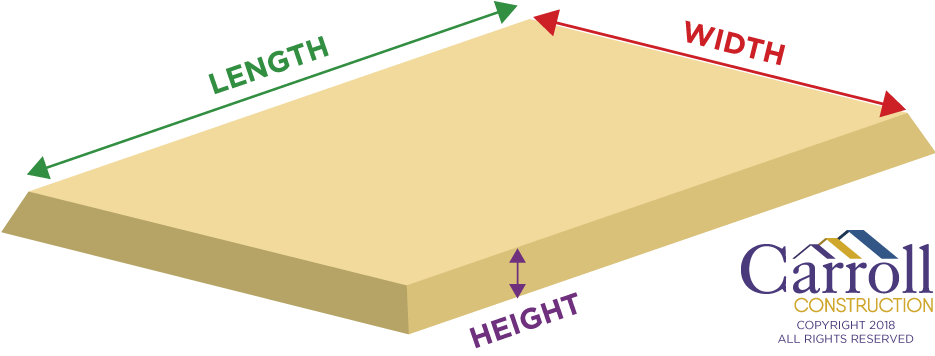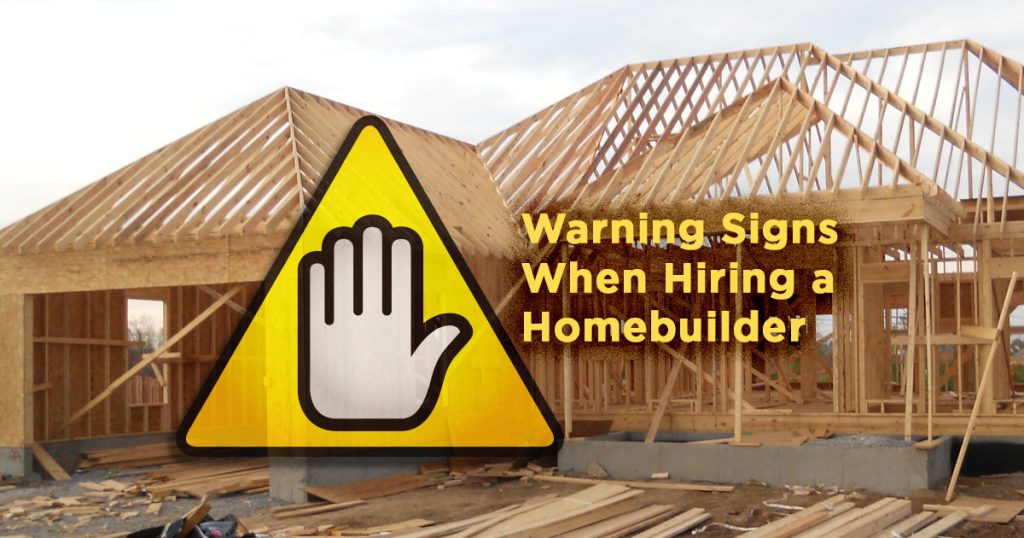 As simplistic as it sounds, earth is the most fundamental element needed when constructing a home.
As simplistic as it sounds, earth is the most fundamental element needed when constructing a home.
Of course, we’re not talking about the huge blue & green sphere spinning underneath our feet; we are talking about good ol’ dirt. It’s quite literally the foundation upon what your house rests, and its importance cannot be underestimated.
The process of preparing a home’s foundation is much more than simply hauling in and spreading dirt: the process requires an advanced knowledge of regional soil compositions, a bit of chemistry, a lot of experience, and an assortment of special equipment. In other words, not all dirt-prep contractors are created equal! That’s why it’s imperative that homeowners know a bit about the process in order to identify common “dirty tricks” and careless shortcuts that disreputable contractors use. You should also be aware of how much fill dirt your project will need, so we’ve included a handy DIRT YARDAGE CALCULATOR to help you estimate the amount required for a house pad.
In this article, we compiled a few true stories from folks who had truly awful experiences with a dirt work contractors. To fully understand how bad those experience were – and to help YOU avoid the problems these people encountered – it’ll help to know a few steadfast rules that apply when prepping for the foundation of a home.
Please sign up to get FREE ACCESS to our popular Dirt Work Calculator. You will receive the password via email within minutes.
The Nitty Gritty On Dirt Work
Dirt work, or dirt-prep, is the key in ensuring the concrete foundation will be evenly supported and will sustain the weight of the throughout its lifetime. Miscalculations with the dirt work could cause the home to eventually sink, the foundation may slip or buckle, or (most commonly) cause the house to shift and create cracks in the walls & slab, or even cause other structural failures!
There are certain factors that affect the integrity of the concrete foundation – aka house pad or slab – of a home:
- The slab needs to rest on solid, undisturbed ground.
- Avoid placing the slab on steeply sloped areas; the slopes can be filled in, but the chances are higher that the soil may adjust or slip over time.
- Sometimes, multiple permits and a plot plan must be obtained, based on local ordinances.
- One aspect of dirt-prep is to haul in “fill”, which should be a soil mixture that closely matches the surrounding dirt on the lot.
- The regional soil testing company will actually require a sample of the dirt being used in order to test it for their “proctor”. A reputable dirtwork contractor will bring the soil directly to the testing lab, usually in a 5 gallon bucket.
- You should contact the soil testing company BEFORE allowing the dirt work contractor to begin.
- Once the fill is laid, it will need to be compacted to ensure little to no settling of the supporting structure. The “compaction rate” is usually expected to be 95% or higher.
- As a rule of thumb, soil that is extremely wet or extremely dry does NOT compact very well. Knowing the optimal conditions to begin compaction is usually a skill developed only by seasoned professionals.
- Cutting corners to save money on site preparation and pad construction often results in repair expenses that equal 10X the cost of doing proper dirtwork in the first place.
- Use our handy DIRT YARDAGE CALCULATOR to estimate the amount of fill dirt required for a house pad.
Now that you have a reference point of what SHOULD BE done, let’s look at a few unfortunate - yet quite common - scenarios that actually happened people here in the Gulf Coast.
When a Buddy Deal Goes Bad
It’s human nature to seek out a good deal. And it’s also ingrained in us to try and support our friends’ businesses. So when you combine those 2 human traits, it’s really tough to pass up a “buddy deal”, right? After you read this, it may make you pause next time you think of doing business with a friend.
“When it was time for us to build, I contracted the project myself since I have somewhat of a background in construction. One of the first steps was house dirt prep. Not having a clue as to what was involved in dirt-work, I contacted a buddy who ran a dirt-work company. He met me on our land and easily talked me into hiring him.The project involved digging a pond, building a 100 x 100 house pad, grading the land, and putting in swales to handle any drainage issues. Plus, the city/parish required a permit, as well as a Plot Plan to show how the drainage would flow. My good buddy promised to take care of everything.
To our surprise, 3 days later the dirt-work was done! Since we trusted that “my buddy” knew what he was doing – and not knowing how to evaluate his work – we went ahead and cut him a pretty big check straight from our savings account. That was a huge mistake…”
Problem #1: The house pad was too small. We had agreed on the size, and I had even laid out the flags in the general shape we wanted, but realized it was too small once early construction began.

Problem #2: The dirt was not properly compacted! After the slab had been poured and construction began, our plumber alerted us to the softness of the soil and asked if it had been compacted. I asked my buddy for the compaction report, called the company on the paperwork he gave me, and was told by the inspector that OUR SITE HAD NOT PASSED INSPECTION! Yep, my “buddy” forged the paperwork.
As a (hopeful) solution, we had to put in $8,000 worth of concrete drill shafts throughout the pad before we could resume construction! Otherwise, we would have had to tear it all down and start from scratch.
Problem #3: My buddy reneged on the settlement we agreed on. Instead of pursuing legal action, we came to an alternative solution in which he’d provide 50 loads of dirt to be used on another area of the property. But after delivering only 22 loads, he told me that should be fair enough…anything further could be decided in court.
Playing Dirty Tricks With Estimates & Quotes
As we said earlier, everybody wants to get a good deal. But sometimes we don’t have all the information about a service to know if the deal we’re getting is “too good to be true”…and that’s exactly what some of the more predatory contractors are counting on.
One of the most common “bait & switch” tactics is massively underbidding competitors’ prices (the bait) to make their offer too good to pass up. However, since their bid is completely unrealistic, they never truly intended to fully deliver the goods & services for the agreed upon cost. Once work actually begins, they will come back and demand more money to finish the job (the switch). They’re betting you’ll think it’s easier to pay them the additional money rather than stop the work and begin again with someone else. In the end, you will pay the same amount - if not more - than if you’d have chosen a reputable contractor with a fair market bid.
That’s essentially what happened with this homeowner:
Please sign up to get FREE ACCESS to our popular Dirt Work Calculator. You will receive the password via email within minutes.
Discrepancies on Amount of Materials Quoted vs. Materials Delivered
Not every subcontractor you hire is going to be skilled at both dirt prep and office paperwork. In fact, much like people in every other industry, administrative processes - such as written estimates, accounts receivable and collections - may receive little to no attention.
Shoddy admin practices and disjointed procedures are not uncommon with independent subcontractors (as well as many single proprietorships, regardless of industry). If you are hiring an indie firm to perform stand-alone construction projects like dirt-prep, don’t be too shocked if estimates are over/underestimated, paperwork goes missing, or a hundred other administrative mishaps occur.

For example, one family relayed this experience of muddling through a frustrating series of mishaps while working with a disorganized subcontractor.
Our house pad required less dirt than the dirt-work contractor estimated, yet he expected to be paid for the total amount of dirt he was supposed to bring in, rather than the amount he actually brought in. After a tense conversation where we tried to explain that we wouldn’t pay for dirt not used, he finally agreed to adjust the price and made a handwritten change to the total on the ‘Customer’s Copy’ of the invoice. We cut a check for the new amount, and the contractor even put the check number and date on the invoice. We figured that was the end of that.Well, a couple of weeks later we received a letter from his attorney trying to collect the difference between the amount of the ORIGINAL invoice, and the HANDWRITTEN amount that what we cut the check for. It seemed like the contractor had no record of the adjusted amount and possibly thought we were trying to short him. We ended up having to present the lawyer our copy of the invoice, along with a copy of the check from the bank, just to clear the matter up.
Although this scenario probably was not malicious, it certainly was annoying and time consuming this family. And, along with the other real-world scenarios, it also highlights a more broad issue: homeowners should have some sort of “checks & balances” system in place so that they understand the overall scope of work their subcontractors are providing. Yeah, I know that is a lot to expect. But building a home (literally) from the ground up is a complex series of projects…and it is relatively easy for an unscrupulous subcontractor to take advantage of a trusting homeowner. So that's why we've outlined a few things below to watch for.
For example, one family relayed this experience of muddling through a frustrating series of mishaps while working with a disorganized subcontractor.
Although this scenario probably was not malicious, it certainly was annoying and time consuming for this family. And, along with the other real-world scenarios, it also highlights a more broad issue: homeowners should have some sort of “checks & balances” system in place so that they understand the overall scope of work their subcontractors are providing. Yeah, I know that is a lot to expect. But building a home (literally) from the ground up is a complex series of projects…and it is relatively easy for an unscrupulous subcontractor to take advantage of a trusting homeowner. So that’s why we’ve outlined a few things below to watch for.
Here are some important steps you can take to spot the dirty tricks, avoid the common pitfalls, and maybe even preempt future expenses due to an inadequate foundation.
- Obviously, do as much research as possible before hiring subcontractors. Check their reviews on Yelp, Facebook, Google, AngiesList, and other sources. Speak with their past customers, and ask lots of questions.
- Whomever you hire, make sure they at least have General Liability Insurance. This will cover most expenses should something major go wrong with the project, including the cost or repairing and/or replacing damaged property.
- You should verify the coverage by requesting an insurance certificate naming YOURSELF as an additional insured. The certificate should come directly from the insurance company and not from the contractor.
- In addition to hiring a dirt work contractor, you will also need to select a soil testing company. They will provide you with instructions on what is needed to prepare the site for dirt work.
- Be present when the fill dirt is being delivered. If you are being charged by the truckload, make sure your get what you paid for. If there is a discrepancy, address it immediately and get clarification on a solution.
- Depending on the jurisdiction you will need a compaction test every 8" to 12" of dirt that is added AFTER the topsoil is removed.
- If your house pad is higher than 3' worth of fill, you should have a geotechnical report completed.
- Do your own basic calculation for how much dirt you will need. Carroll Construction has created a very helpful dirt yardage calculator to assist in estimating how much dirt you'll need for a house pad of any dimensions. We have factored in replacing the 8" (.67 ft) of topsoil that is typically removed prior to the formation of a house pad. We've also accounted for the amount of dirt that would be needed to form the "slope" that descends from the edge of the house pad. These are 2 factors that may not appear in a dirt contractor's estimates!
As it now may be clear, it is very difficult for the typical homeowner to properly manage all the critical details associated with the dirtwork process. Moreover, a poorly built / improperly designed house pad could lead to horrendous structural problems as well as lots of wasted time and money. That’s why - above all else - we recommend having the person you choose to be the BUILDER handle the dirt work services! A trained contractor not only knows what it takes to build a solid foundation at the most efficient cost, but they also know how to spot the "dirty tricks" used by unscrupulous contractors.

Please sign up to get FREE ACCESS to our popular Dirt Work Calculator. You will receive the password via email within minutes.








